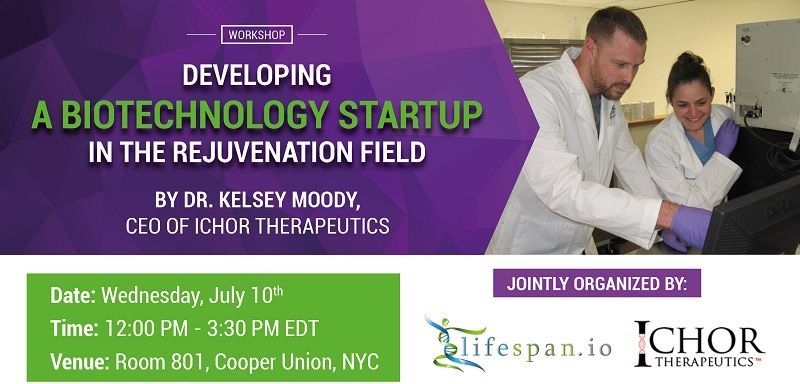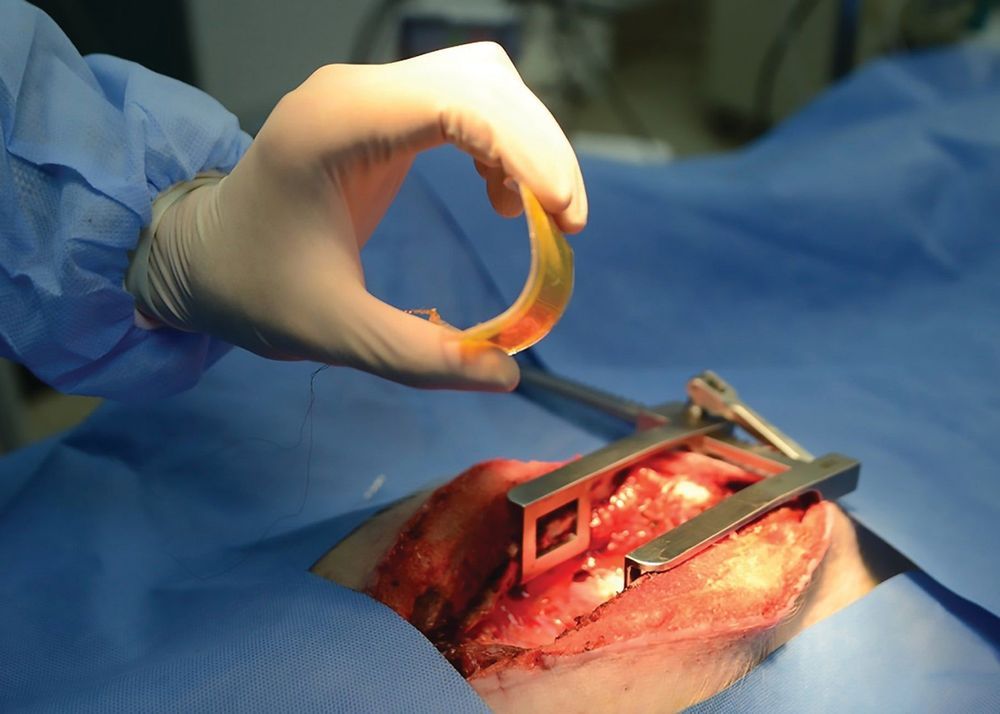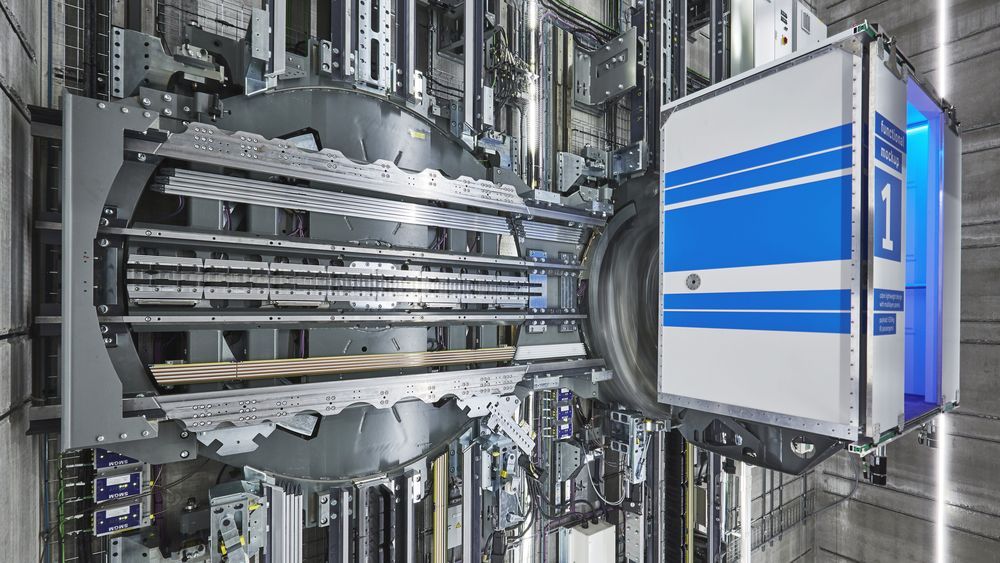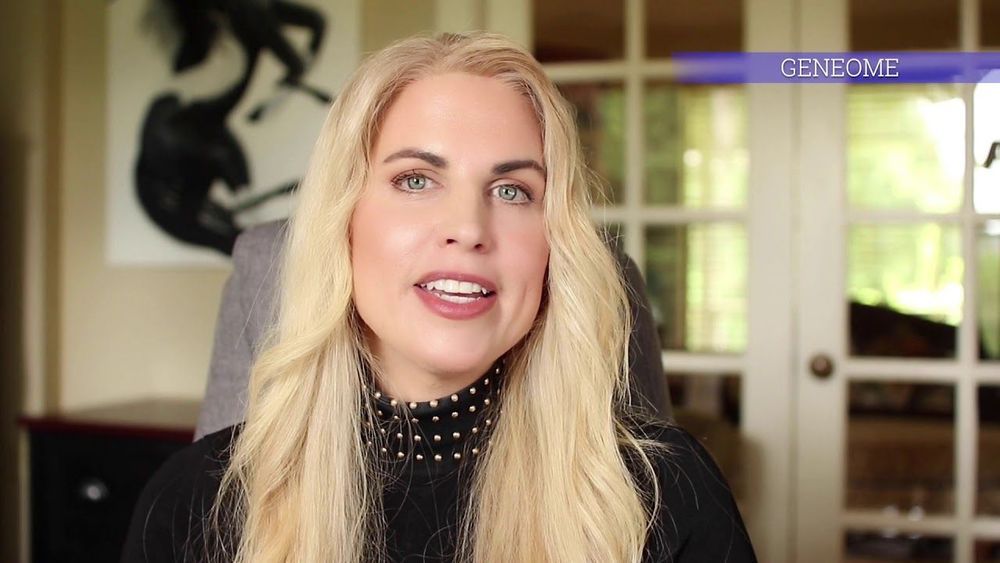Page 8766
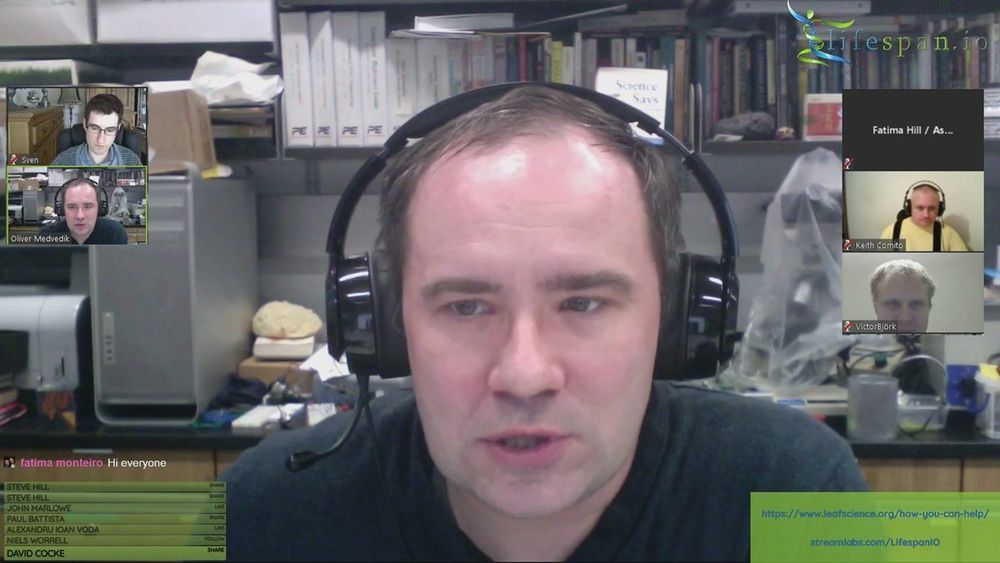
Hosted by Dr. Oliver Medvedik, the May edition of Journal Club will focus on the recent publication by the Spiegel Lab at Yale University where two forms of advanced glycation end products were successfully cleaved. We already discussed this important breakthrough in our article – Reversal of Two Advanced Glycation End Products Achieved. Now we will be taking a deeper look at the data during the journal club.
Link to Paper:
https://sci-hub.tw/https://onlinelibrary.wiley.com/doi/pdf/1.…201900158
May 28, 2019
Developing a Biotechnology Startup in the Rejuvenation Field
Posted by Steve Hill in categories: biotech/medical, life extension
Alongside our Ending Age-related Diseases 2019 annual conference, we are proud to announce the launch of a special pre-conference biotech workshop led by Dr. Kelsey Moody, CEO of Ichor Therapeutics, a successful and rapidly growing rejuvenation biotechnology company.
This joint event between the Life Extension Advocacy Foundation and Ichor Therapeutics is an essential workshop where you will learn about the fundamentals of launching and growing a successful biotechnology company with an emphasis on the nuances specific to the emerging rejuvenation biotechnology industry.
May 28, 2019
New Pacemaker Harvests Energy from the Heart
Posted by Genevieve Klien in category: biotech/medical
A device that converts the heart’s mechanical energy into electrical energy has been successfully tested in pigs.
- By Harini Barath on May 28, 2019
May 28, 2019
Provocative study shows how the herpes virus can speed up the onset of Alzheimer’s disease
Posted by Genevieve Klien in categories: biotech/medical, neuroscience
An intriguing new study from researchers at Stockholm University and Karolinska Institutet has described a mechanism by which virus particles can interact with proteins in biological fluids and become more infectious, while also accelerating the formation of plaques often associated with neurodegenerative diseases such as Alzheimer’s.
May 28, 2019
Albino panda cub is the cutest genetic rarity you’ll see today
Posted by Genevieve Klien in category: genetics
May 28, 2019
Meet the world’s first cable-free elevator—it can zoom horizontally or vertically
Posted by Shane Hinshaw in category: futurism
Willy Wonka’s preferred mode of transport has become a reality. (from 2017)
It could help change the way that buildings are designed, as well as getting you to your floor faster.
May 28, 2019
Transhumanism Is Tempting—Until You Remember Inspector Gadget
Posted by Derick Lee in categories: biotech/medical, computing, food, transhumanism
It’s comforting to think of the body as a machine we can trick out. It helps us ignore the strange fleshy aches that come with having a meat cage. It makes a fickle system—one we truly don’t understand—feel conquerable. To admit that the body (and mind that sits within it) might be far more complex than our most delicate, intricate inventions endangers all kinds of things: the medical industrial complex, the wellness industry, countless startups. But it might also open up new doors for better relationships with our bodies too: Disability scholars have long argued that the way we see bodies as “fixable” ultimately serves to further marginalize people who will never have the “standard operating system,” no matter how many times their parts are replaced or tinkered with.
Tech gurus are obsessed with treating bodies like machines—something a 30-year-old cartoon about a tricked-out detective suggests won’t work.

